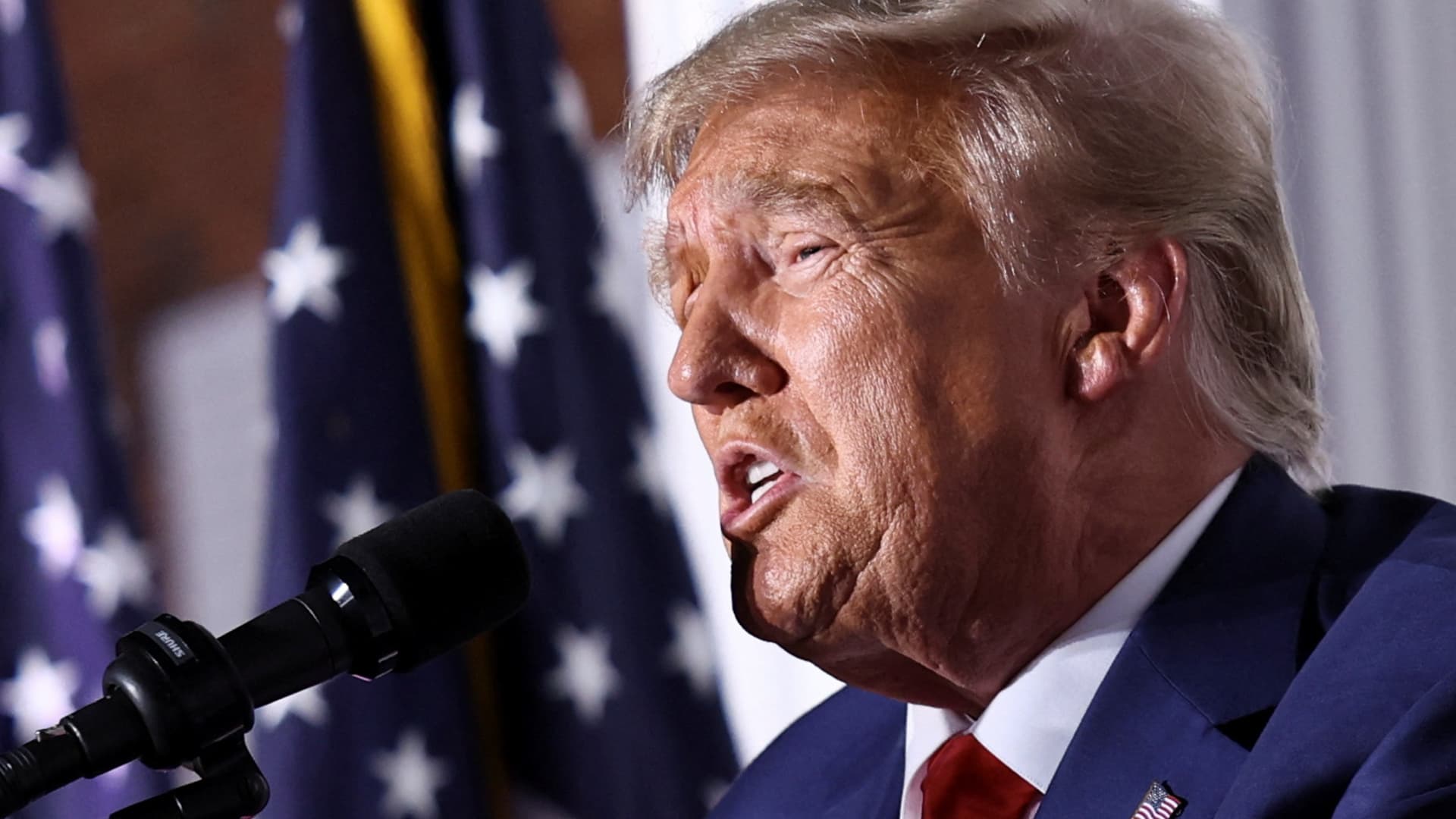A federal judge on Wednesday issued an order setting limits on where and how former President Donald Trump can discuss classified information with his defense lawyers for the criminal case where he is charged with retaining classified documents after leaving the White House.
The protective order by Judge Aileen Cannon instructing Trump and his lawyers to discuss that information in a secured location endorsed limitations sought by prosecutors from the office of special counsel Jack Smith over the objections of Trump.
But Cannon’s order, which came nearly two months after Smith first requested it in U.S. District Court for the Southern District of Florida, was vague on the question of whether several concessions sought by Trump on the issue would eventually be granted in one form or the other.
Read more of CNBC’s politics coverage:
Cannon did not explicitly address a request by Trump to create a so-called Sensitive Compartmented Information Facility, or SCIF, at his Mar-a-Lago club in Palm Beach, Florida, so that he could discuss classified information there as he prepares for trial in the case.
Smith had opposed that request, noting, among other things, that Mar-a-Lago is the scene of the alleged crime.
Smith also had opposed Trump’s request to be allowed to discuss classified information in his office at Mar-a-Lago or his office at his club in Bedminster, New Jersey.
Cannon’s 16-page order, which was issued after a sealed two-hour hearing Tuesday on the dispute, implied that only a SCIF operated by the U.S. government would be used by the defense to discuss classified information.
But she did not specifically rule out one being created at Mar-a-Lago or Bedminster in the future.
The judge also said a classified information security officer already appointed in the case could authorize a location other than a SCIF for the defense to discuss classified information.
“The defense shall discuss classified information only within the SCIF or in an area authorized by the CISO,” Cannon wrote.
She also wrote: “The CISO shall establish procedures to assure a SCIF is accessible during business hours to the defense, and at other times upon reasonable request as approved by the CISO in consultation with the Court and United States Marshals Service.”
“The SCIF shall contain a working area for the defense and will be outfitted with any secure office equipment requested by the defense that is reasonable and necessary to the preparation of the Defendant’s case.”
A spokesman for Smith declined to comment.
Trump’s lawyer Todd Blanche did not immediately respond to requests for comment.
Cannon’s order bars Trump and his attorneys from disclosing any classified information to people not explicitly authorized. She noted that Trump and the lawyers may face “criminal and/or civil penalties” if they violate the terms of her order.
Trump was indicted in early June by a federal grand jury in Florida on more than three dozen criminal counts related to his retention of hundreds of classified documents after leaving the White House in January 2021, and his efforts to prevent U.S. officials from recovering those records. The documents in some cases contained national defense information.
Also charged in the case are his valet Walt Nauta, and a Mar-a-Lago worker, Carlos De Oliveira, who are accused with Trump for an alleged attempt to destroy video surveillance footage that showed Nauta and De Oliveira moving boxes containing classified documents at a time they were being sought by a subpoena.
Trump, Nauta and De Oliveira have pleaded not guilty to the charges.





